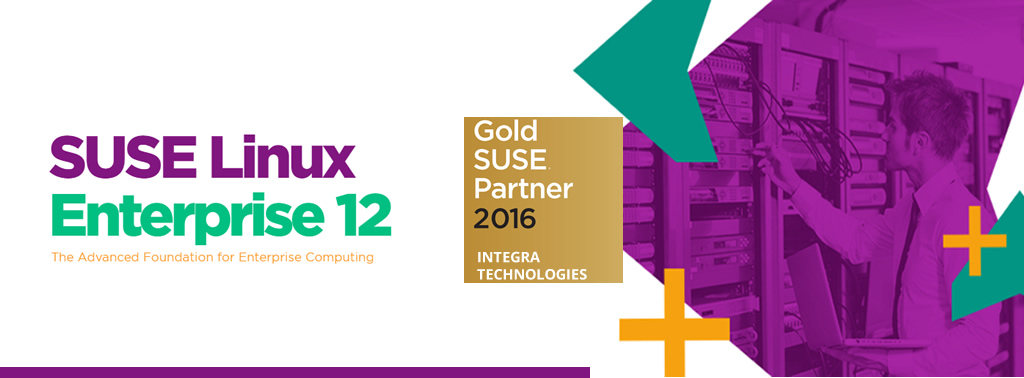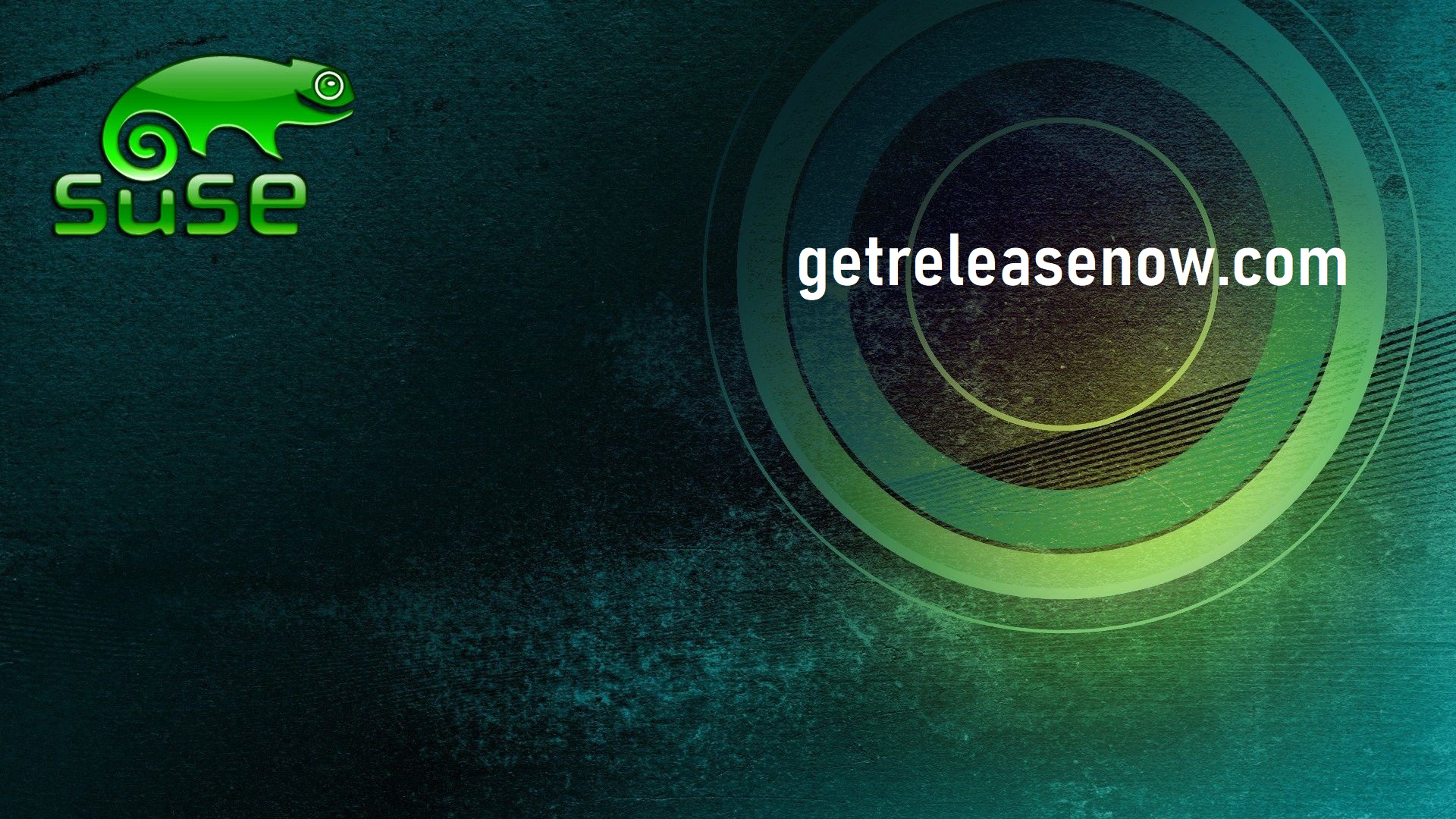Why SUSE Linux is a Top Choice for Modern Enterprises
Introduction
SUSE Linux is a well-established and respected Linux distribution, known for its stability, enterprise focus, and strong community involvement. Founded in 1992, SUSE (pronounced “soo-zuh“) has played a significant role in the Linux ecosystem, providing both a free, open-source version (openSUSE) and a premium outfit edition (SUSE Linux Enterprise). Over the years, it has gained a reputation for reliability, flexibility, and security, making it a preferred choice for businesses, developers, and IT professionals worldwide.
What is SUSE Linux?
SUSE Linux is a Linux-based operating system designed to be enterprise-ready and to support cloud and containerized environments exceptionally well. It serves as a robust platform for everything from servers to cloud infrastructures, making it popular in industries like finance, healthcare, and government. SUSE offers two main products:
- openSUSE: A free, open-source version tailored for developers, system administrators, and power users who want access to the latest technologies and community-driven development.
- SUSE Linux Enterprise (SLE): A commercial, enterprise-grade Linux distribution focused on stability, security, and long-term support, commonly used in data centers, cloud environments, and critical systems.

History of SUSE Linux
Founding of SUSE in 1992
SUSE Linux was founded in 1992 by four German software engineers — Roland Dyroff, Burchard Steinbild, Hubert Mantel, and Thomas Fehr. Initially called “Software und System-Entwicklung” (Software and System Development), SUSE began as a consulting firm providing UNIX-based software solutions. Shortly after its inception, the founders saw the potential of the emerging Linux operating system and decided to create their own Linux distribution to make it more accessible and user-friendly for developers and businesses.
Early Development and Growth
SUSE released its first Linux distribution in 1994, based on the Slackware version of Linux, marking its official entry into the market. Over time, SUSE introduced significant enhancements, such as the creation of YaST (Yet another Setup Tool), which became a standout feature of the SUSE Linux distribution.
YaST simplified system management and configuration, giving SUSE a unique advantage over other Linux distributions by providing an easy-to-use interface for users to manage their systems. As Linux gained popularity in the late 1990s, SUSE expanded its offerings to include both desktop and server solutions, quickly becoming a leading choice for businesses, educational institutions, and individual users. It was one of the key distributions that helped Linux expand into the enterprise space, competing closely with Red Hat in terms of enterprise support and reliability.
Key Acquisitions and Evolution Over Time
In 2003, SUSE was acquired by Novell, a U.S.-based software company, for $210 million, which expanded SUSE’s international reach and strengthened its position in the enterprise market. Under Novell’s ownership, SUSE Linux Enterprise (SLE) was developed, focusing on delivering stability and long-term support specifically for business environments.
In 2011, SUSE became an independent business unit under Attachmate after it acquired Novell. This transition allowed SUSE to sharpen its focus on its core strengths, including enterprise Linux and open-source development. During this period, SUSE expanded its capabilities in cloud and virtualization, positioning itself as a key player in the cloud computing market.
In 2018, EQT Partners, a private equity firm, acquired SUSE for $2.5 billion, further enhancing its autonomy and dedication to open-source innovation. Under EQT, SUSE continued its growth trajectory, making strategic acquisitions like Rancher Labs in 2020 to enhance its container and Kubernetes offerings, solidifying its status as a leader in cloud-native development.
Key Features of SUSE Linux
Enterprise Stability and Support
One of SUSE Linux’s strongest features is its focus on providing a stable, enterprise-ready platform. SUSE Linux Enterprise (SLE) is designed specifically for business use, offering long-term support (up to 13 years) and regular updates. This makes it a dependable option for companies that require stable and secure systems with minimal downtime. For businesses running critical applications, SUSE provides 24/7 support and comprehensive technical assistance to ensure smooth and uninterrupted operations.
YaST Configuration Tool
YaST (Yet another Setup Tool) is a signature feature of SUSE Linux that offers a user-friendly interface for managing and configuring the system. YaST simplifies many tasks, such as installing software, managing partitions, setting up networks, and configuring security, making SUSE accessible even for those without extensive Linux experience. It also supports remote administration, making it a versatile tool for both individual users and enterprise environments.
OpenSUSE for Community Users
In addition to its enterprise offerings, SUSE also supports the community-driven openSUSE project, which provides a flexible, open-source Linux distribution for developers, hobbyists, and general users. openSUSE comes in two versions:
- Leap: A stable release aimed at users who need a reliable platform.
- Tumbleweed: A rolling release for users who prefer access to the latest features.
openSUSE benefits from SUSE’s enterprise-grade infrastructure but is designed to serve the broader Linux community, providing innovation and access to cutting-edge technologies.
Security and Compliance
SUSE Linux is known for its robust security features and compliance with global standards. It includes built-in tools such as SELinux (Security-Enhanced Linux) and AppArmor to enforce strict access controls. For enterprise users, SUSE ensures compliance with industry regulations like GDPR and HIPAA by offering encryption, auditing, and secure boot functionalities. These strong security measures make SUSE a suitable choice for sectors like healthcare, finance, and government, where data protection is paramount.
Cloud and Container Integration
SUSE Linux is highly adaptable to cloud and container technologies, making it an excellent choice for modern, cloud-native environments. With SUSE Linux Enterprise, businesses can easily deploy and manage applications across multi-cloud and hybrid cloud environments.
The acquisition of Rancher Labs enhanced SUSE’s capabilities in Kubernetes management, allowing for seamless integration with containerized applications. SUSE also offers tools like SUSE Cloud Application Platform and SUSE Manager to streamline cloud deployment and management, providing businesses with the flexibility they need to scale operations effectively.
Advanced File System: Btrfs
SUSE Linux was one of the first distributions to adopt the Btrfs (B-tree file system), known for its advanced features like snapshotting, self-healing, and data integrity. Btrfs offers robust support for large-scale storage management and provides better performance and reliability compared to traditional file systems.
These features are especially valuable in enterprise settings where data integrity, system backups, and disaster recovery are crucial. With built-in support for rollback functionality, SUSE helps users recover quickly from system failures, enhancing its reputation for reliability.

READ MORE : Safe Movie (Full Action)
Benefits of Using SUSE Linux
Flexibility
SUSE Linux is highly flexible and available in various forms, such as SUSE Linux Enterprise (SLE) for businesses and openSUSE for community users. This versatility allows users to deploy SUSE on a wide range of hardware, including desktops, servers, and cloud environments. Its modular structure supports a variety of workloads, from small web servers to large enterprise systems. The YaST tool also allows users to customize their system configurations, making SUSE suitable for different industries and sectors.
Scalability
SUSE Linux is designed to scale effortlessly, making it a great choice for growing businesses. It enables users to expand their infrastructure from small setups to large, complex systems without compromising on performance. SUSE’s integration with cloud tools like the SUSE Cloud Application Platform and Kubernetes management (via Rancher Labs) offers an easy path to scale up for cloud-native applications. This allows businesses to start small and grow their IT infrastructure as their needs increase while maintaining a stable, high-performance system.
Reliability
SUSE Linux has established itself as a reliable platform for critical enterprise operations. It offers a long-term support cycle and regular security updates, ensuring systems remain operational and secure. The adoption of the Btrfs file system further enhances reliability by enabling features like snapshotting and rollback, which allow users to recover from system crashes or errors without losing data. This makes SUSE an ideal choice for industries such as healthcare, finance, and government, where uptime and data integrity are essential.
Security
Security is a top priority for SUSE Linux, especially for its enterprise users. The platform comes with advanced security features like SELinux, AppArmor, and secure boot to protect against unauthorized access, malware, and other vulnerabilities. Additionally, SUSE’s compliance with global standards like GDPR and HIPAA makes it an excellent option for businesses that must adhere to strict data protection regulations. SUSE regularly releases security patches and updates to keep ahead of potential threats, ensuring a secure operating environment.
SUSE Linux in Different Industries
Finance and Banking
Security and Compliance: SUSE Linux offers robust security features essential for the finance and banking industry. It includes advanced encryption, secure boot, and trusted platform modules (TPM) to maintain data integrity and confidentiality. Configuring firewalls, and intrusion detection systems (IDS), and helping regular security updates financial institutions meet strict compliance standards like PCI-DSS (Payment Card Industry Data Security Standard).
Scalability and Performance: The finance sector requires systems that handle high transaction volumes and real-time processing. SUSE Linux is designed to provide scalable solutions that manage heavy workloads efficiently. With support for advanced clustering and load balancing, it ensures financial applications remain accessible and perform optimally during peak usage times.
High Availability and Disaster Recovery: SUSE Linux’s High Availability Extension and Geographic Cluster Support guarantee that critical financial services continue to operate even in the event of system failures or disasters. Features like automated failover and data replication across multiple sites offer a reliable solution for disaster recovery.
Cost-Effectiveness: Being an open-source platform, SUSE Linux offers a cost-effective solution by reducing overall software expenses. This is particularly beneficial for financial institutions looking to optimize their IT budgets without sacrificing performance or security.
Healthcare
Data Privacy and Security: Healthcare organizations manage sensitive patient data and must adhere to strict privacy regulations like HIPAA (Health Insurance Portability and Accountability Act). SUSE Linux offers built-in encryption, secure access controls, and audit logging to protect patient information and ensure regulatory compliance.
Interoperability and Integration: SUSE Linux provides a stable platform for integrating various healthcare systems, including Electronic Health Records (EHR) and Health Information Systems (HIS). It supports multiple protocols and standards, facilitating seamless data exchange between different systems and improving patient care and operational efficiency.
Reliability and Uptime: In healthcare, system downtime can have serious consequences. SUSE Linux offers features like real-time kernel support and high-availability clustering to ensure that healthcare applications remain operational 24/7, minimizing disruptions in patient care.
Support for Advanced Technologies: SUSE Linux supports technologies like artificial intelligence (AI) and machine learning (ML), which are increasingly being used in healthcare for diagnostics, predictive analytics, and personalized treatment plans. The platform’s robust architecture allows healthcare providers to leverage these technologies effectively.
Government
Security and Compliance: Government agencies require high levels of security and adherence to regulations such as FISMA (Federal Information Security Management Act). SUSE Linux offers advanced security features like secure boot, data encryption, and access controls to safeguard sensitive government data and meet regulatory requirements.
Customizability and Flexibility: The open-source nature of SUSE Linux allows government organizations to tailor their systems to meet specific needs. This flexibility is crucial for supporting various applications and services within government operations.
Cost Savings: By using SUSE Linux, government agencies can reduce licensing costs associated with proprietary software. The open-source model not only lowers initial software costs but also provides ongoing savings through reduced maintenance and support fees.
Reliability and Support: Government operations require reliable systems with minimal downtime. SUSE Linux offers enterprise-grade reliability with high-availability clustering and extensive support services to ensure uninterrupted service delivery.
Long-Term Viability: SUSE Linux has a strong track record of stability and long-term support, which is vital for government projects that require reliable software over extended periods. Its commitment to providing continuous updates and security patches aligns with government needs for sustainable technology solutions.
Why Choose SUSE Linux?
Business-Friendly Nature
Cost-Effective: SUSE Linux is a cost-effective alternative to proprietary operating systems, offering flexible licensing and a lower total cost of ownership. Its open-source nature allows businesses to avoid high licensing fees and minimize long-term IT expenses.
Customizable: Businesses can modify SUSE Linux to meet their specific requirements due to its open-source flexibility. This adaptability ensures the operating system is optimized for different applications and workflows, enhancing overall efficiency.
Enterprise-Grade Reliability: SUSE Linux offers a stable platform with features tailored for mission-critical environments. Its high availability and disaster recovery options help ensure that business operations are not disrupted.
Strong Open-Source Community
Continuous Innovation: The active SUSE Linux community drives ongoing innovation and improvements. This collaborative environment ensures the operating system remains current with the latest technologies and security advancements.
Extensive Support: An active open-source community provides valuable resources such as forums, documentation, and shared expertise, helping businesses resolve issues quickly and efficiently.
Freedom and Flexibility: The open-source nature of SUSE Linux gives businesses the freedom to modify and distribute the software as needed, allowing them to adapt the operating system to their unique needs.
Support for Hybrid Cloud Environments
Seamless Integration: SUSE Linux is designed to work across various cloud environments, including public, private, and hybrid clouds. This compatibility simplifies the deployment and management of applications in diverse cloud settings.
Scalability: The operating system supports scalable cloud architectures, allowing businesses to efficiently manage resources and scale their operations as needed to meet changing demands.
Enhanced Security: SUSE Linux provides robust security features for hybrid cloud environments, including advanced encryption, secure access controls, and compliance with industry standards. These features help protect data and applications across different cloud platforms.
Conclusion
Summary of SUSE Linux’s Strengths
SUSE Linux is distinguished by its reliability, flexibility, and strong security features, making it an excellent choice for enterprise environments. Its versatile architecture supports various hardware and virtualization technologies, allowing it to scale to meet different business needs.
The platform offers extensive support services, including technical assistance and training, which enhances its appeal to organizations. Additionally, its commitment to open-source principles fosters innovation and community collaboration, while its focus on modern technologies like cloud and containerization keeps it relevant. Its cost-effectiveness further makes it a smart choice for enterprises looking to balance high performance with budget constraints.
Its Place in the Future of IT Systems
As the IT landscape evolves, SUSE Linux is well-positioned for future success due to its ability to adapt to new trends. Its support for cloud and hybrid cloud environments aligns with the growing need for flexible IT infrastructure.
The platform’s integration with technologies like containerization and microservices ensures its continued relevance. Moreover, its scalability supports advanced applications like AI and machine learning, making it suitable for a wide range of future needs. SUSE Linux’s ongoing innovation will continue to play a crucial role in shaping the future of IT systems.



